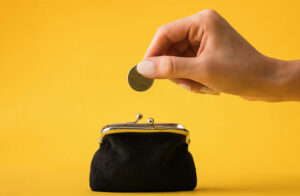
When we hear the word “discipline” we generally think of punishment. However, it is important to remember that discipline is really about teaching. The word disciple comes from the word discipline. When you think of Jesus’ disciples, they were people trying to learn from Him so they could go out and teach and spread the Gospel. When you put this in the context of your children, try to frame it that you are teaching them how to function and experience life in the safest and most productive way possible, so they can teach their children to do the same.
One of the best ways to teach your child is thru positive reinforcement. When your child is having a lot of negative behaviors, it is really easy and natural to constantly focus on those behaviors. However, when we do this, the child focuses on the negative as well, gets down on his or herself, and we get down on the child and ourselves. This then becomes a cycle of negativity. It is important to try to focus on what they are doing right as well. Sometimes you may really have to dig to find something positive! But there is something there. Start small. It may be something as little as they said “Thank you”. Reward them for the positive and then build on that.
An excellent example of how this works was played out in my own home. Our son, who was 4 at the time, suddenly started having some very negative and even aggressive behavior. We knew it was partially due to his baby brother arriving a few months earlier, but we also understood he was trying to establish some control as a toddler/preschooler. Even with what I teach to parents, my husband and I easily fell into the “negativity” cycle. We started taking away things when his behavior was negative. Eventually he became hopeless and didn’t care anymore, so his behavior got worse. Finally we came to our senses and started positive reinforcement. We created a “Good Job Jar” and every time we caught him doing something positive he got a marble. When the jar was full he got a prize. His love language is Quality Time so it was usually something special he could do with us that would be out of the ordinary. We praised him for the tiniest things in the beginning and we would make a huge deal when we put the marble in the jar. We would shake it and get very excited. He started getting excited and wanted to do more to fill it, thus he began following directions, not arguing, and not fighting us. It worked!
You can do anything like this: a sticker trail, a chart, or a simple jar. Be sure and make it age appropriate. For teens they can earn privileges for positive behaviors. It is important to understand that I am not saying to ignore the negative behaviors. They still need punishment as well. However, try to look for the positive in your child and praise them for that, too. Speaking of punishment, let’s talk about how to deal with the negative. Everyone has different ideas and opinions regarding how to punish. It is important for you and your partner or caretakers to do your own research and decide what is appropriate for your family. Here are some things to help you when making that decision:
1. Your discipline should build their self-esteem and not be humiliating or shaming.
2. It needs to be age appropriate. It wouldn’t work to give 15 year-old a time out, nor would it be appropriate to give a 15 month-old a 15-minute time out!
3. Separate the behavior from the child. Make sure the child knows their behavior is bad and they are not bad.
4. Make sure your child knows you still love them no matter what they do. For example, talk to them after the punishment and let them know you still love them; you just don’t like the behavior.
5. Make sure your punishment is about teaching and not to make you feel better. This is how physical abuse can happen by releasing the parent’s frustrations to make them feel better. This is NEVER appropriate.
With punishment, it is important to be consistent and follow thru. Children respect parents who say what they mean and mean what they say. As things get better with your child you can become more flexible but in the beginning it is important to stick to the punishment you initially promised.
Allow natural consequences. By interfering when we don’t need to, we rob our children of the ability to learn from the consequences of their actions. Sometimes natural consequences can be the best teacher of them all. For example, if a child refuses to eat when they are expected to, an excellent consequence is to let them be hungry until the next meal and do not allow them to have a snack. Let them feel the consequence of not eating. It may sound cruel and I wouldn’t recommend ever taking away meals or making this an everyday occurrence, but most kids will learn from this and eat at the expected time.
For tantrums, or with teens that enjoying yelling at you, withdraw from the conflict. Do not participate! During a tantrum, make sure the child is safe and leave the room. Tell your child you will be in the next room if he/she wants to “try again”. When they calm down, talk to them about the tantrum and remember to still initiate punishment. Many kids try to distract by having a tantrum. They still need to do their time out or whatever the consequence was that made them so upset. Again, hug them and let them know you still love them, but did not like their behavior.
In closing, the most important part of Positive Parenting is to remember to take care of you. Get good rest, proper nutrition, and some time for yourself when possible. Schedule time for you or it may not happen! I hope this helps you become a Positive Parent, resulting in more Positive Kids!
Written by guest columnist, Natalie Chandler, MA, LMHC of Imagine Hope Counseling Group





